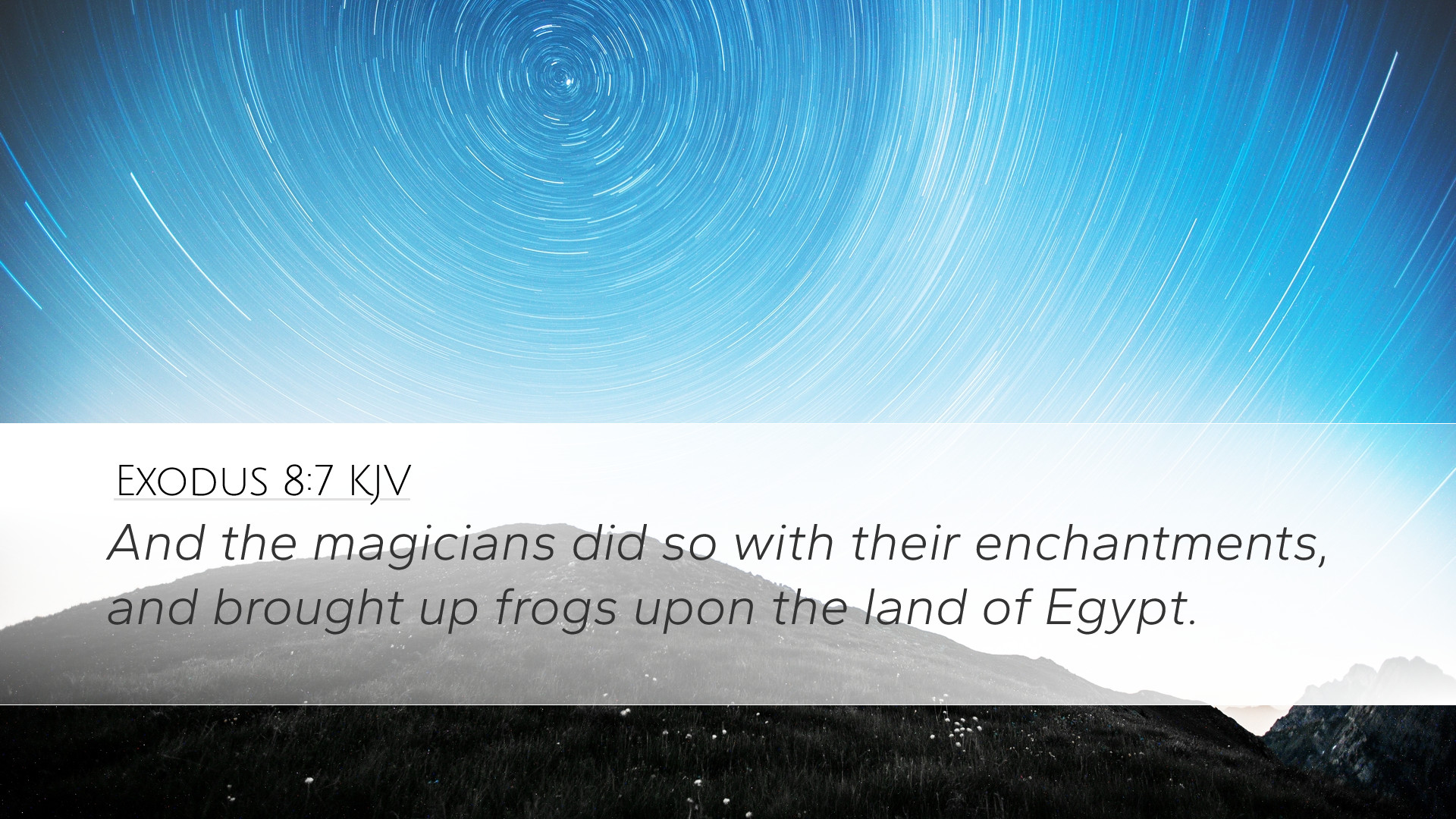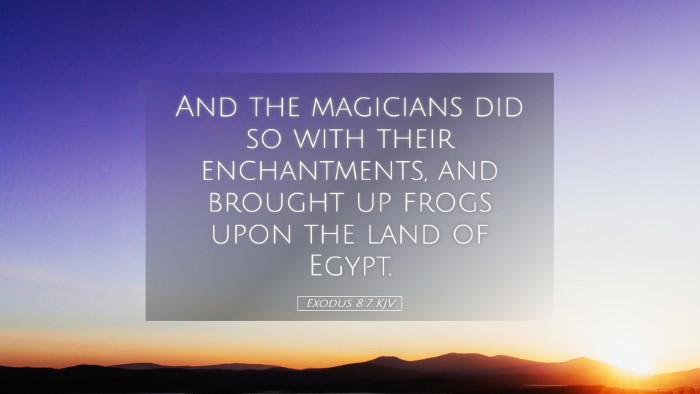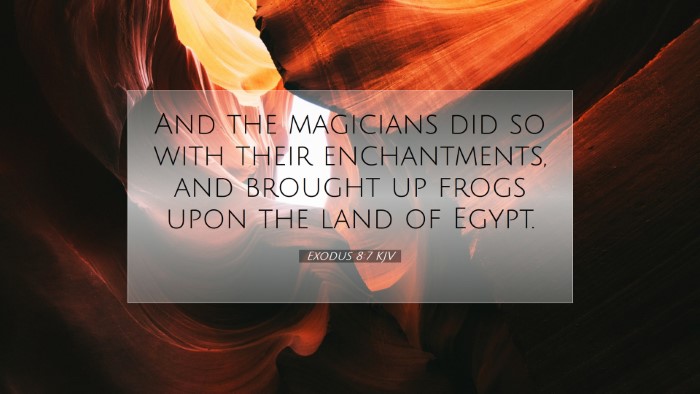Exodus 8:7 - A Commentary
Bible Verse: Exodus 8:7 (KJV) "And the magicians did so with their enchantments, and brought up frogs upon the land of Egypt."
Contextual Background
Exodus 8 is set during the period of the plagues that God brought upon Egypt as a demonstration of His power, and as a means for Pharaoh to recognize and submit to the will of God. This verse is particularly focused on the second plague - the plague of frogs. The magicians of Egypt, utilizing their enchantments, replicate part of the miracle that the Lord performed through Moses, further deepening the conflict between divine authority and human rebellion.
Insights from Commentaries
Matthew Henry's Concise Commentary
Henry observes that the magicians, through their enchantments, were mere imitators of God’s true power. He highlights the futility of relying on human wisdom and sorcery in front of divine wisdom. Their ability to produce frogs only compounded the misery of the Egyptians, as it did not relieve the situation but exacerbated it. This illustrates how false prophets or leaders can lead the people away from the real deliverance that comes from God.
Albert Barnes' Notes on the Bible
Barnes argues that the magicians’ demonstration emphasized the obstinacy of Pharaoh's heart. Instead of acknowledging the sovereignty of the God of Israel when confronted with the plagues, Pharaoh seeks validation from his own magicians. This act of replication demonstrates a superficial denial of God's supremacy in favor of their own power. It also raises questions about the source of their enchantments and the implications of magic and sorcery in contrast to the divine acts of God.
Adam Clarke’s Commentary
Clarke points to the limitations inherent in the magicians’ works. He asserts that while they could mimic the miraculous act, they could not reverse or alleviate the plague. The frogs' plague provides insight into the nature of man’s inability to remedy the situations caused by sin, whereas God has the power to transform and ultimately deliver. Clarke also comments on the symbolic representation of frogs in ancient Egypt and the cultural significance they held, which further highlights the intent of God to challenge the Egyptian pantheon.
Theological Implications
This verse serves as a poignant reminder of the struggle between divine authority and human obstinacy. It emphasizes several theological themes:
- Divine Sovereignty: God is supreme over all creation, including the powers that humans may invoke. The magicians, though able to produce frogs, could not control or nullify God's judgment.
- Human Limitations: The inability of the magicians to alleviate the suffering caused by the frogs demonstrates the limitations of human capability in the face of divine intervention.
- False Power: The replication of God’s miracle by the magicians illustrates the deceptive nature of false power. While it appears effective, it ultimately lacks real substance and fails against God’s true authority.
- Call to Repentance: This passage is a call for awareness and recognition of God’s hand in history and the need for societal and personal repentance before divine judgment.
Practical Applications
From this analysis, several practical lessons emerge for pastors, students, theologians, and scholars:
- Importance of Recognizing God's Work: In ministry and personal faith, it is essential to discern the true workings of God versus the imitation of false powers.
- Encouragement in Adversity: Even amidst difficulty and the apparent workings of worldly systems, God is actively at work, calling His people to trust and obey Him.
- Vigilance Against Deception: In a world where many seek to mimic the power of God through various means, it is crucial for believers to remain vigilant and grounded in the truth of God's word.
- Promoting Repentance: Encourage others towards genuine repentance and faith as a response to God's sovereignty and the recognition of their limitations before Him.
Conclusion
Exodus 8:7 encapsulates a critical moment in the narrative of Exodus where the struggle between God's sovereign power and human defiance is vividly illustrated. The reactions of Pharaoh and his magicians highlight profound spiritual truths that continue to resonate today. The shadows of rebellion against divine authority, the reliance on feeble human wisdom, and the stark contrast between true power and deception challenge readers to a deeper understanding of the divine plan and the necessity of turning towards God in faith and repentance.


